Introduction
It’s certainly a unique and challenging environment in which to renegotiate or negotiate an Enterprise Agreement. We have a new ALP Government, high inflation, and growing discontent and resentment that wages that are not keeping pace – all of which are impacting the current bargaining environment. Below, are just some of the trends we are seeing out there this bargaining round.

An increase in ambit excessive wage claims
With rising costs of living putting pressure on all parties involved in enterprise bargaining, employers are encouraged to respond strategically to ambit claims.
Many members are reporting they are facing excessive wage increase demands following a higher-than-usual 5.2% rise in the National Minimum Wage in July.
At the same time, civil contracting businesses are facing spiraling operating costs.
Make sure you respond strategically to ambit claims, how you manage these claims will be important!
Claims around cost of living pressures
Employees are seeking higher wages to manage their own personal pressure of cost of living. From a cost-of-living perspective, there is pressure on all the bargaining parties, not just employees so you need to strategically communicate that and ensure that is well understood from your workforce.
Claims linking the wage increase to CPI
Pay rises linked to CPI as the latest inflation figures have in some instances triggered pay increases of up to 8% for some workers. Why? Because employers who negotiated deals in say 2019 and 2021 when inflation was between 1.1% and 1.6%, have been shocked as the pay rises linked to growing inflation delivered unexpected windfalls for workers.
Certainly, CPI-linked pay rises are still relatively rare for enterprise agreements, but with the pressures of growing inflation we certainly are seeing a trend by unions towards pursuing this type of wage claim.
Quicker turnaround on Enterprise Agreements
As a positive, our Human Resources Management consultants at Ridgeline HR have also reported that there has been a substantial improvement in the processing time for enterprise agreements at the Fair Work Commission.
Given the improved processing time, now is a good time to do one.
Additionally, if your agreement has passed its nominal expiry date, it would be an opportune time to review and replace your current agreement.
There are many reasons why you might want to put an enterprise agreement in place – see this article for more on that: https://ridgelinehr.com.au/is-an-enterprise-agreement-the-answer/.
Our pro tip – Communication
- When you are dealing with excessive bargaining claims, it helps that employees as a baseline understand the narrative of where the business is going, the operational environment, the current state of the market and its relevant impacts, as well as the vision for the future. Start engaging employees early in your business imperatives pre-bargaining, and you can unlock and open up a better environment to bargain in. In our experience, the work on gaining genuine engagement of employees on the business imperatives pre-bargaining will not be time wasted!
- Consistent, transparent and emphatic messaging will be at a high premium pre-bargaining and during negotiations. You cannot be tone deaf in your communications, “spin” and “fluff” are not going to cut it, you need to be genuine, and real.
- Now, more than any other round of bargaining, Employees need to believe you genuinely care, and that you place a high priority on their health, safety and wellbeing – make sure you are reflecting that in your communications and engagement approach.
-Nicole Walsh Executive Manager, Industry Capability & Engagement – CCF Victoria
-Peter Maguire- Ridgeline HR
Latest News
-
 Learn moreNews | 15 May
Learn moreNews | 15 MayFEDERAL BUDGET BUILDS FOUNDATIONS FOR AUSTRALIANS WITH HOUSING ENABLING INFRASTRUCTURE
The Civil Contractors Federation (CCF) has welcomed the 2024-25 Budget, providing 69 newinfrastructure projects worth $4.6b, assurance of the $120b...
-
 Learn moreNews | 07 May
Learn moreNews | 07 MayVictorian State Budget
Victoria’s infrastructure program is set to continue largely unchanged, following the release of the State Government’s FY25 Budget tabled in...
-
 Learn moreNews | 29 April
Learn moreNews | 29 AprilInjured civil workers supported back to work
Victorian workers recovering from injury will be supported to return to work safely through a new agency set up by...
-
 Learn moreNews | 26 April
Learn moreNews | 26 April76th Level Crossing Removed 1 Year Ahead of Schedule
The Allan Labor Government has removed a dangerous level crossing at Brunt Road in Beaconsfield – making it the 76th...
-
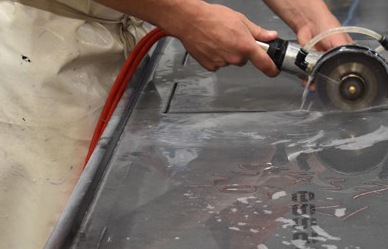 Learn moreNews | 23 April
Learn moreNews | 23 AprilThe Victorian Government has now provided clarity on silica in the civil construction workplace.
Silica is not just in engineered stone From 1 July 2024, employers or self-employed person will no longer be permitted...
-
 Learn moreNews | 22 April
Learn moreNews | 22 AprilPriority Harms Working Group – Civil Subsector
News from the Civil Contractors Federation participation in WorkSafe’s Priority Harms Working Group. During April, the working group regular meeting...
-
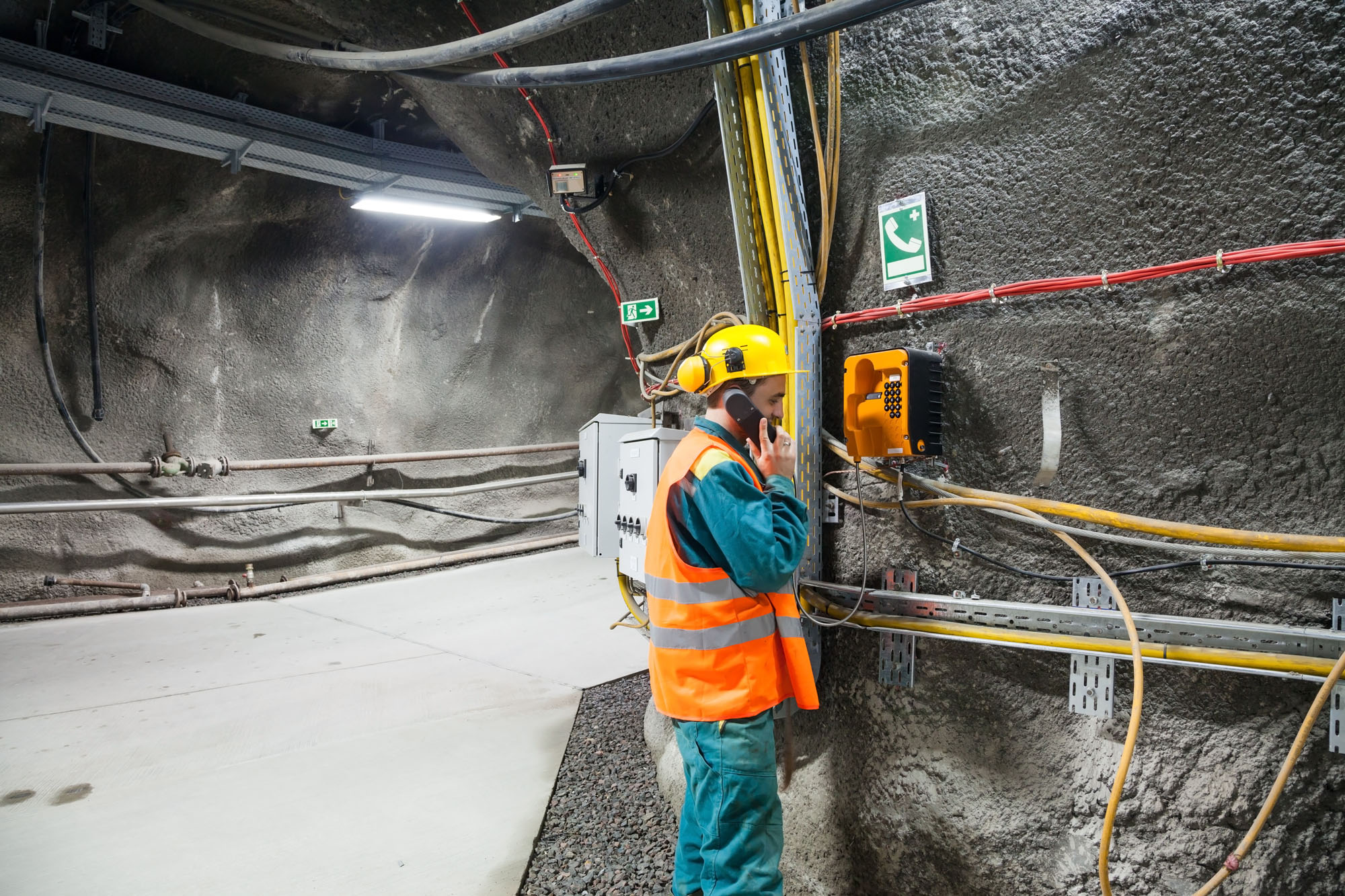 Learn moreNews | 27 March
Learn moreNews | 27 MarchVEDN Auditor Training
VEDN has asked that our members are reminded that anyone seeking accreditation as civil construction auditor must have also completed...
-
 Learn moreNews | 27 February
Learn moreNews | 27 FebruaryNew Traffic Management Course Enrolments – Opening Soon!
The Department of Transport and Planning (DTP) is delivering the Traffic Management Reform (TMR) program to transform the traffic management...
-
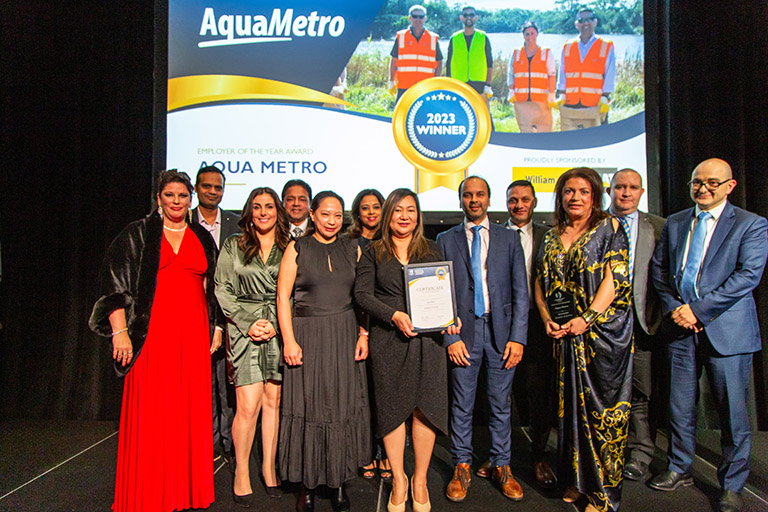 Learn moreNews | 26 February
Learn moreNews | 26 FebruaryNominate now for the 2024 People & Training Awards!
The annual CCF Victoria People & Training awards acknowledge outstanding achievements by nominated employees and teams in training and other select...
-
 Learn moreNews | 12 January
Learn moreNews | 12 JanuaryVictoria on track for life-saving level crossing upgrades
Railway crossings in Victoria are on track to receive significant upgrades thanks to the Australian Government’s Regional Level Crossing Upgrade...
-
 Learn moreNews | 12 January
Learn moreNews | 12 JanuarySummer Works Heat Up On West Gate Tunnel Project
The Allan Labor Government’s West Gate Tunnel Project will soon be one step closer to improving travel times between the...
-
 Learn moreNews | 10 January
Learn moreNews | 10 JanuaryFederal Government Blocking an Offshore Wind Farm
The Federal Government has blocked part of a development proposal for Australia’s first offshore wind farm over environmental concerns. The...
-
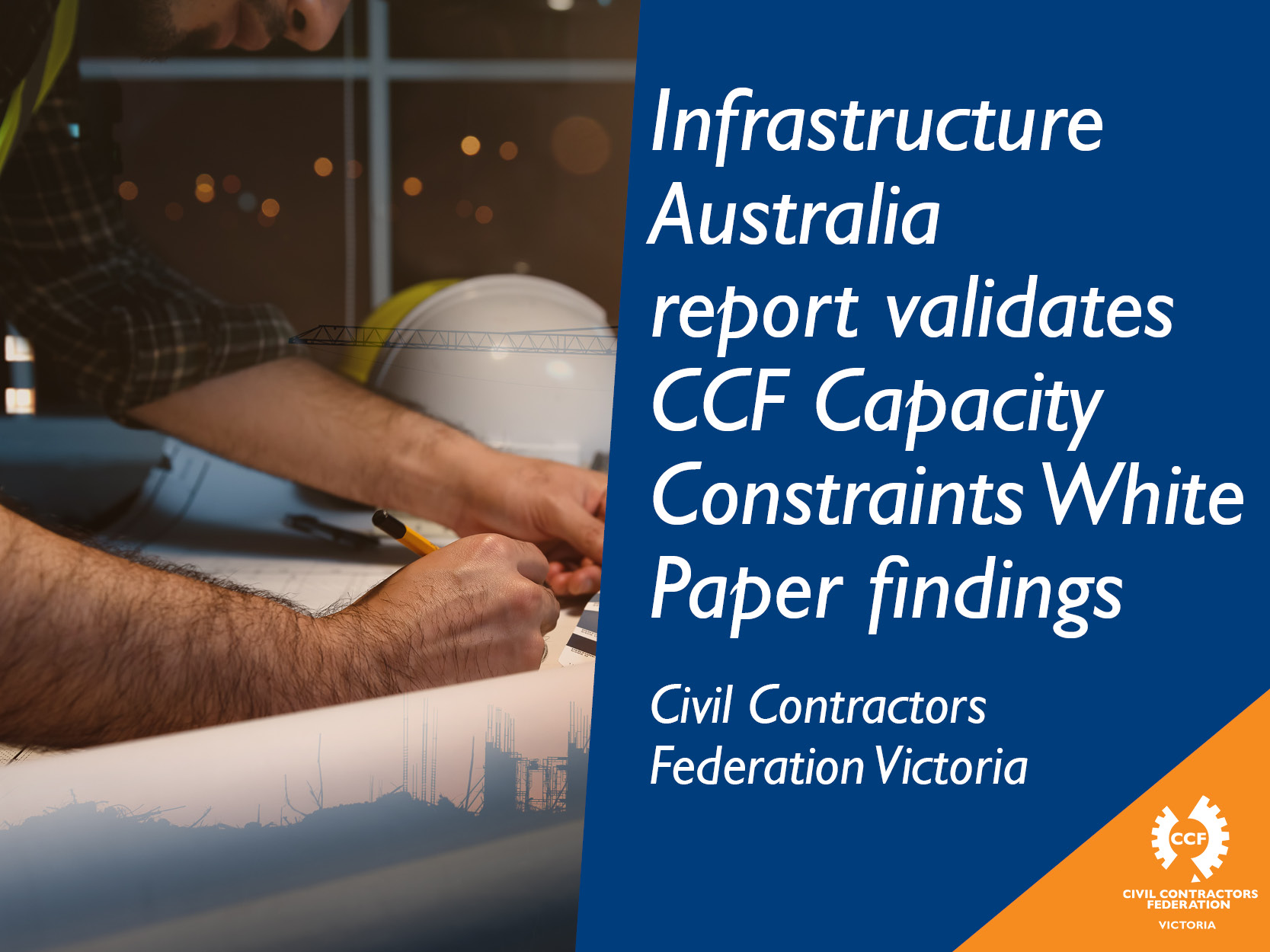 Learn moreNews | 12 December
Learn moreNews | 12 DecemberInfrastructure Australia report validates CCF Capacity Constraints White Paper findings
Infrastructure Australia’s updated Market Capacity 2023 Report reinforces the opportunity for governments of all levels to work more collaboratively with...
-
 Learn moreNews | 04 December
Learn moreNews | 04 DecemberWurundjeri Way Reopens As City Bypass Takes Shape
The Wurundjeri Way and Dudley Street intersection reopened last night after an around the clock construction blitz on the new Wurundjeri...
-
 Learn moreNews | 16 November
Learn moreNews | 16 NovemberVictorian civil contractors dealt a huge blow with 12 major rail and roads projects axed by federal government
The Federal Government’s scrapping of 12 major infrastructure projects across Victoria is a significant blow to the industry and will...
-
 Learn moreNews | 25 October
Learn moreNews | 25 OctoberFirst look at designs for Eastern Freeway Overhaul
Before major works to upgrade the Eastern Freeway kick off next year, slashing travel time for thousands of commuters, the...
-
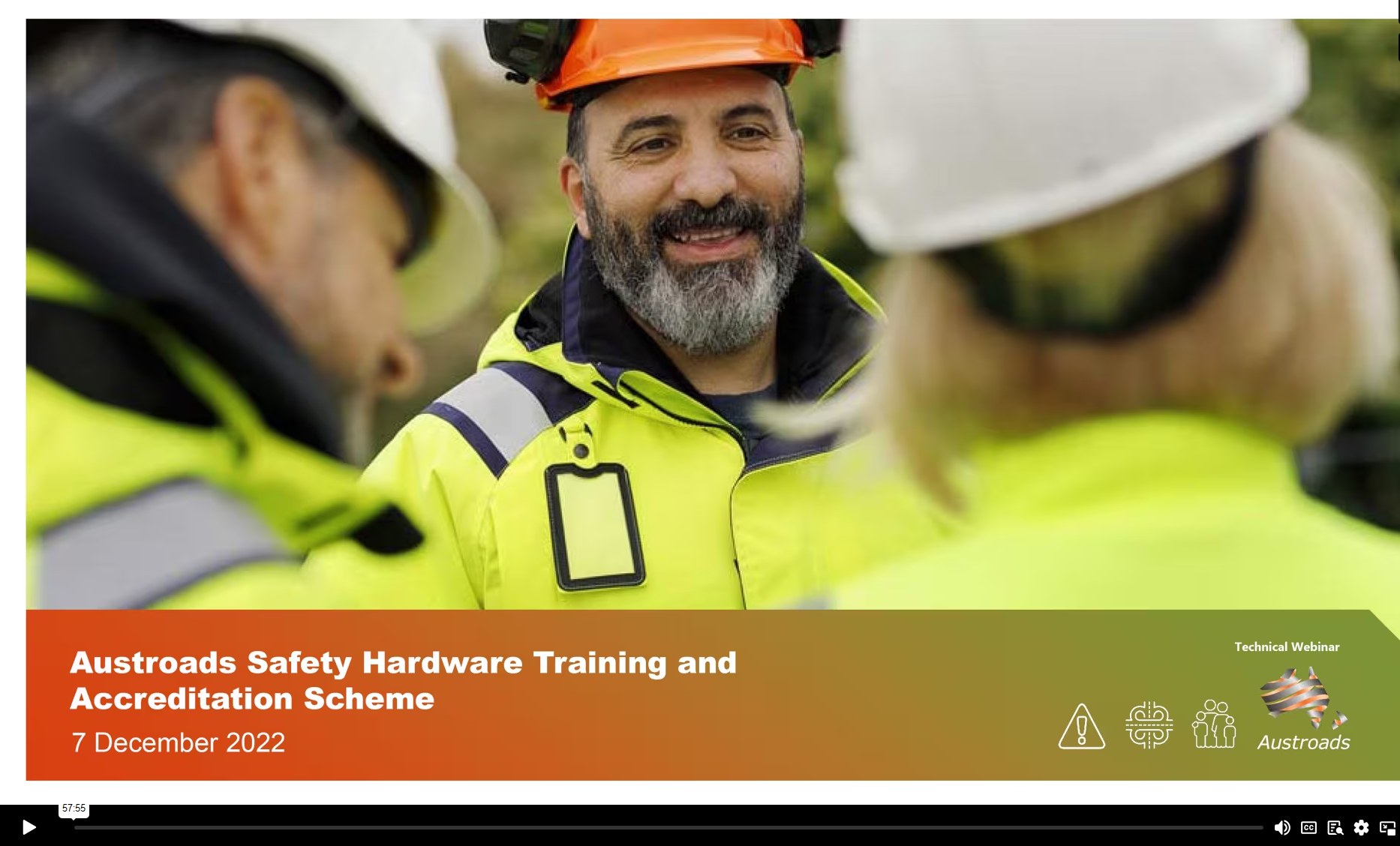 Learn moreNews | 10 October
Learn moreNews | 10 OctoberVictorian Implementation of the ASHTAS Scheme
The Austroads Safety Hardware Training and Accreditation Scheme (ASHTAS) delivers a high standard and nationally consistent set of training outcomes...
-
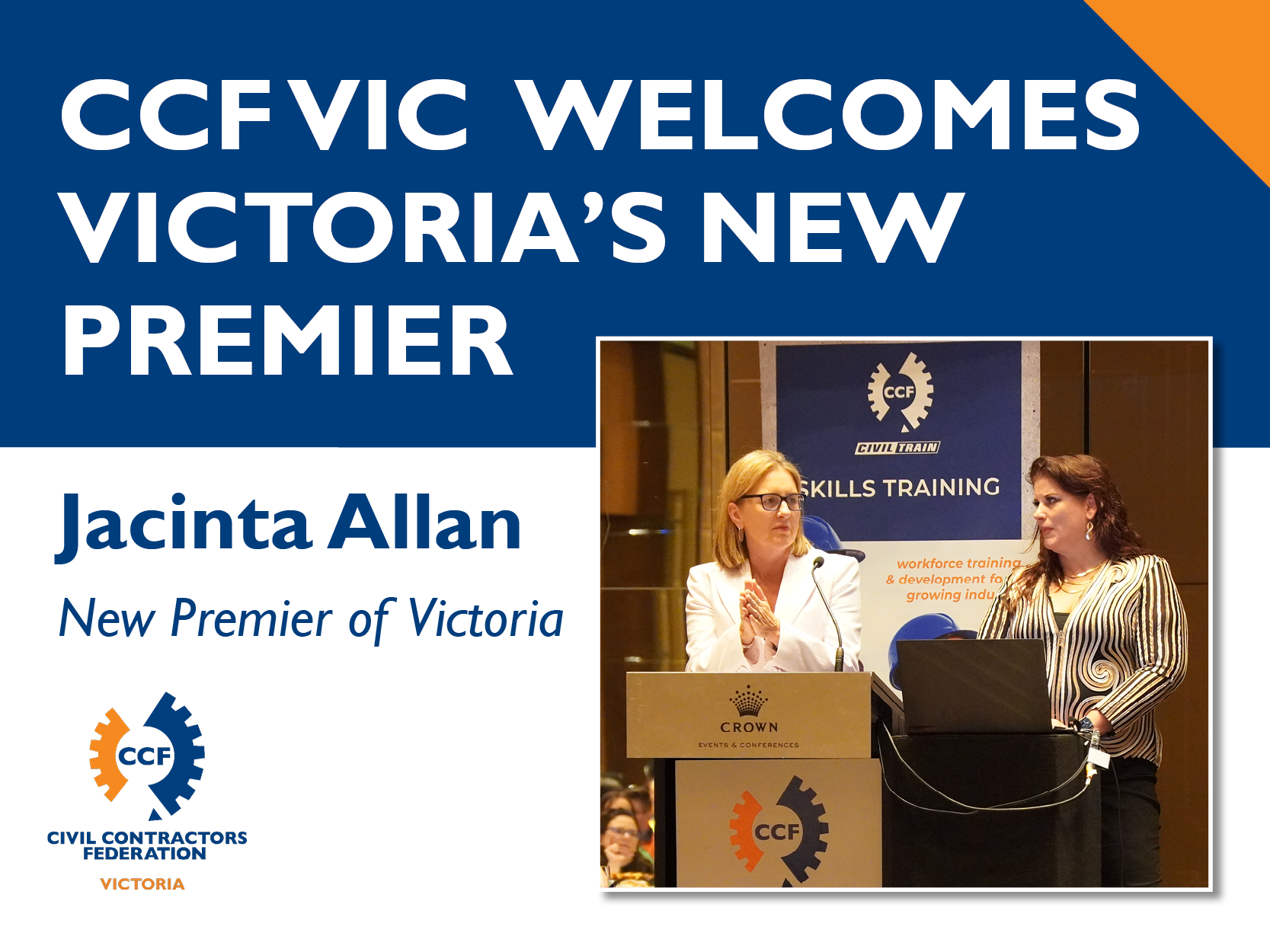 Learn moreNews | 28 September
Learn moreNews | 28 SeptemberCCF Victoria welcomes Jacinta Allan as state’s new Premier
CCF Victoria congratulates the Hon. Jacinta Allan MP on becoming the state’s 49th Premier. Premier Allan has been instrumental in...
-
 Learn moreNews | 26 September
Learn moreNews | 26 SeptemberCareer changers take first step on new Pathway
CCF Victoria has welcomed the first group of apprentices embarking on exciting new careers in civil construction, following the official...
-
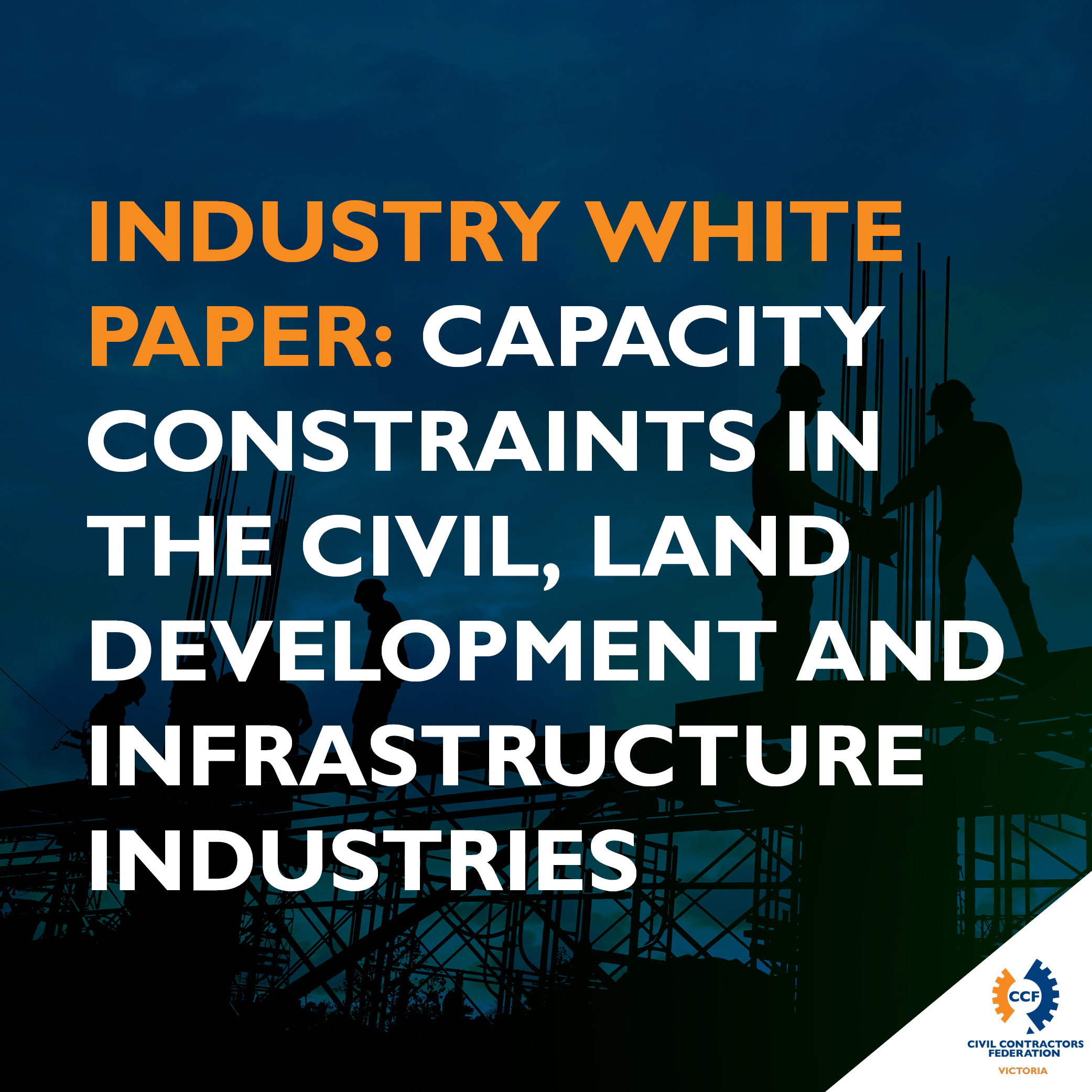 Learn moreNews | 11 September
Learn moreNews | 11 SeptemberInfrastructure peak bodies urge greater Government collaboration to deliver for Victoria
Industry and government have the capability, shared responsibility and fresh opportunity to ensure that development in Victoria is delivered in...
-
 Learn moreNews | 04 August
Learn moreNews | 04 AugustCivilHQ Launches!
CivilHQ Is Out Now! We are very proud and excited to launch your new online community platform – CivilHQ. CivilHQ...
-
 Learn moreNews | 03 August
Learn moreNews | 03 August2023 Annual General Meeting
2023-2024 Board Elections The Annual CCF Victoria AGM is coming up in September, and we have recently opened Board Nominations...
-
 Learn moreNews | 29 June
Learn moreNews | 29 JuneSouth East Water’s new customer contribution fees
Our charges are changingEvery 5 years, we review our prices and services. We call this a price submission and its...
-
 Learn moreNews | 29 June
Learn moreNews | 29 JuneLendlease to take on $1.7b Queen Victoria Market Redevelopment
Lendlease has successfully obtained the $1.7 billion contract for the redevelopment of Queen Victoria Market in Melbourne. The project, undertaken...
-
 Learn moreNews | 27 May
Learn moreNews | 27 MayVictorian State Budget – A bitter blow to Business
The Victorian State Budget has delivered stinging costs on Victorian businesses which will impact thousands in the State, the national...
-
 Learn moreNews | 10 May
Learn moreNews | 10 MayCCF 2023-24 Federal Budget Overview
On Tuesday 9 May 2023, Treasurer Jim Chalmers handed down the 2023-24 Australian Federal Budget. The budget is a comprehensive financial plan...
-
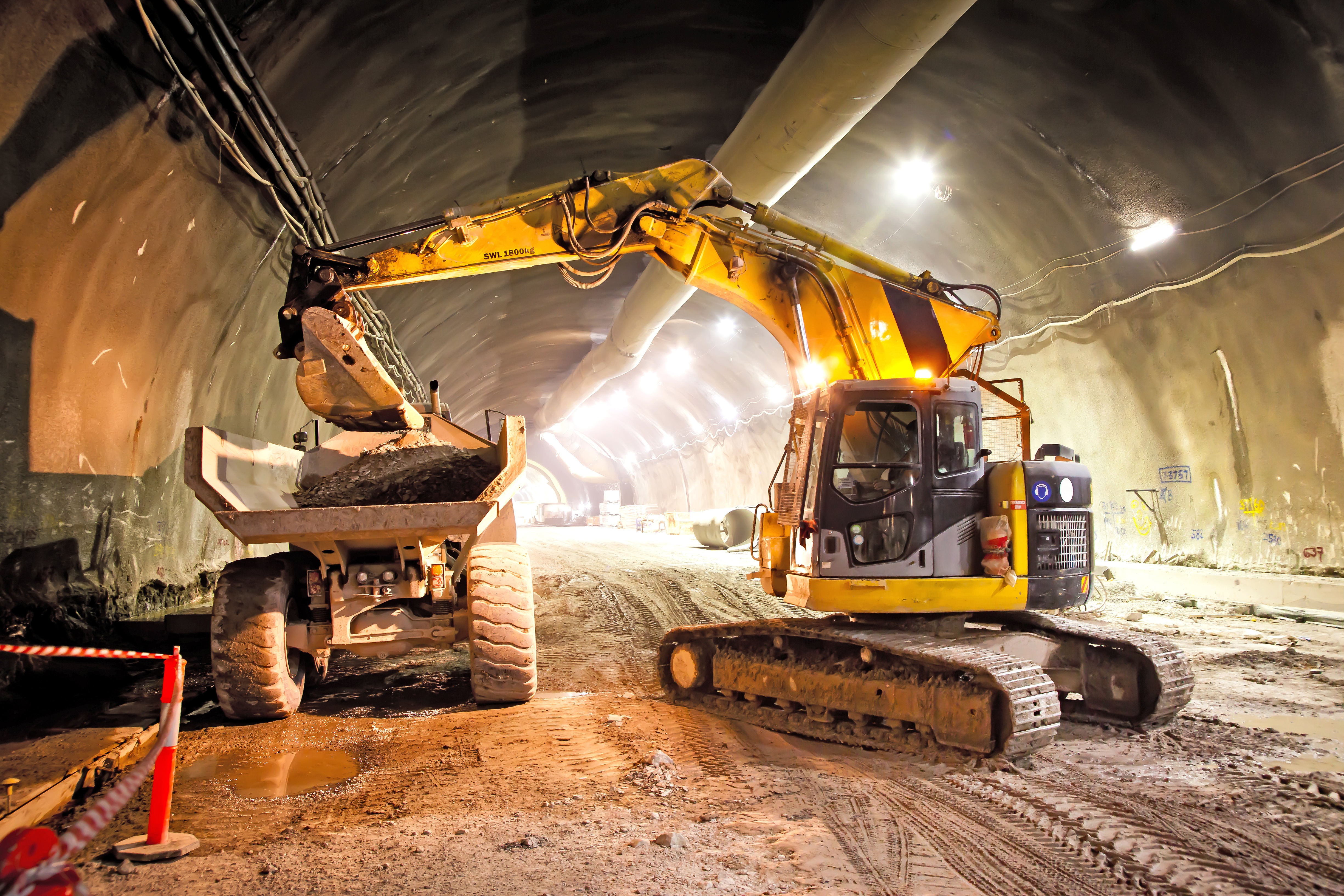 Learn moreNews | 07 May
Learn moreNews | 07 MayMajor Breakthrough on West Gate Tunnel Project
A major milestone has been reached on the Andrews Labor Government’s West Gate Tunnel project,with tunnel boring now complete on...
-
 Learn moreNews | 03 May
Learn moreNews | 03 MayALGA Welcomes $250 million Albanese Government Investment
The Australian Local Government Association (ALGA) has welcomed the Albanese Government’s delivery of an additional $250 million through the Local...
-
 Learn moreNews | 02 May
Learn moreNews | 02 MayCCF National Responds to Infrastructure Review
Civil Contractors Federation National (CCF) looks forward to contributing to the review of Australia’s $120 billion Federal Government Infrastructure Investment...
-
 Learn moreNews | 24 April
Learn moreNews | 24 AprilMEDIA RELEASE – Regional Employment Opportunities for Victoria 2026
April 24, 2023 The Andrews Labor Government has opened a Registration of Interest process inviting Employment Suppliers and Group Training...
-
 Learn moreNews | 21 April
Learn moreNews | 21 AprilUpgrading a busy Intersection in Footscray
The Andrews Labor Government is upgrading one of Footscray’s busiest intersections to improve safety and make it easier for road...
-
 Learn moreNews | 21 April
Learn moreNews | 21 AprilBoosting Safety on Local Council Roads
The Andrews Labor Government is helping local governments across Victoria deliver road safety improvements to council-managed roads, intersections and precincts....
-
 Learn moreNews | 20 April
Learn moreNews | 20 AprilQueenscliff Ferry Terminal Opens
The multi-million Queenscliff Ferry Terminal has officially opened, offering passengers a world class gateway to Geelong, the Bellarine and the...
-
 Learn moreNews | 11 April
Learn moreNews | 11 April125 Council Bridges and Culverts to recieve Funded Heavy Vehicle Assessments
One hundred and twenty-five bridges and culverts in 33 different councils will receivefunded engineering assessments as part of the National...
-
 Learn moreNews | 04 April
Learn moreNews | 04 AprilWorkSafe Construction Guidance
WorkSafe has published two important Guidance Documents that are directly relevant to the Civil Construction Industry. Undertaking work near underground...
-
 Learn moreNews | 28 March
Learn moreNews | 28 MarchMEDIA RELEASE – Pathways Program
March 28, 2023 Civil Contractors Federation Victoria launches new Careers Pathway program targeting women and First Nations people for careers...
-
 Learn moreNews | 27 March
Learn moreNews | 27 MarchCCF Victoria – People & Training Awards 2023
The 2023 CCF Victoria – People & Training Awards are just around the corner. These awards acknowledge outstanding achievements in...
-
 Learn moreNews | 24 March
Learn moreNews | 24 MarchPathways Program
The Pathways program is a newly developed initiative by CCF Victoria, funded by the Victorian State Government through a recently...
-
 Learn moreNews | 23 March
Learn moreNews | 23 MarchRespirable Crystalline Silica
Crystalline Silica is in the headlines as an emerging issue. Silicosis, caused by inhalation of Respirable Crystalline Silica (RCS) is...
-
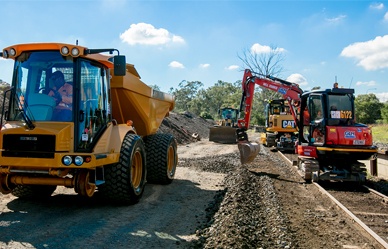 Learn moreNews | 16 March
Learn moreNews | 16 MarchProgress Continues on Pakenham Level Crossing Removals
The progress on the removal of three hazardous and congested level crossings in Pakenham, along with the expansion of the...
-
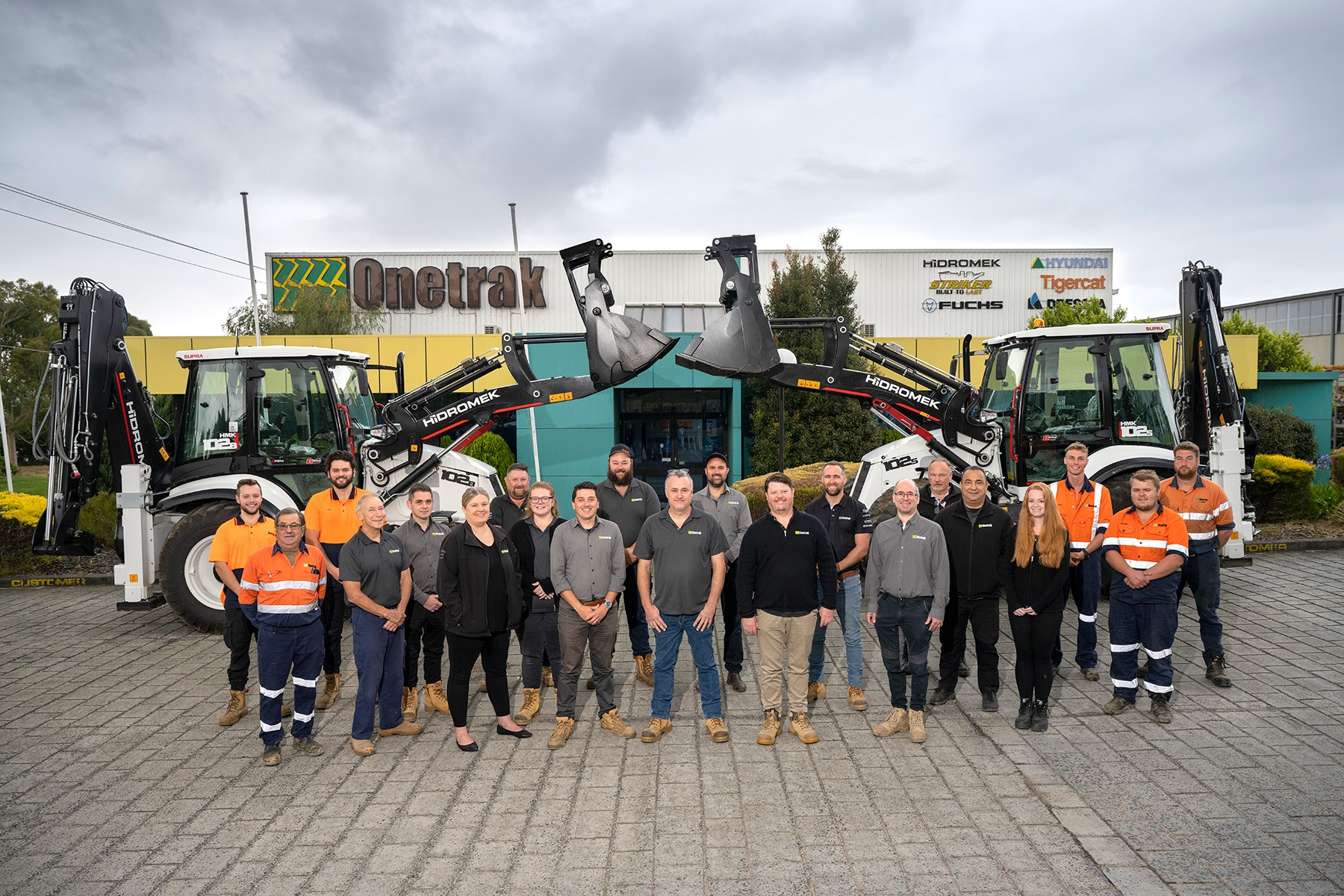 Learn moreNews | 14 March
Learn moreNews | 14 MarchOnetrak celebrates 15 years in Victoria
Onetrak is the Australian dealer for major brands Tigercat, Hidromek, Striker, Anaconda, Fuchs and Dressta. The company has locations in...
-
 Learn moreNews | 10 March
Learn moreNews | 10 MarchCommonwealth Games Village Another Step Closer!
The Andrews Labor Government of Victoria has taken a significant step towards delivering the Commonwealth Games villages across regional Victoria...
-
 Learn moreNews | 01 March
Learn moreNews | 01 March2023 CCF Victoria Earth Awards – Nominations Now Open!
Entries to this year’s Earth Awards are now open. Don’t miss the opportunity to enter your project! Once again, the...
-
 Learn moreNews | 24 February
Learn moreNews | 24 FebruarySaving workers from Silicosis
CCF VICTORIA SAFETY ALERT CCF supports banning the use of engineered stone and implementation of appropriate safety of other silicosis...
-
 Learn moreNews | 07 February
Learn moreNews | 07 FebruaryKey Freight Highways Receive the New Year touch
The Andrews Labor Government’s summertime works blitz will involve significant road rebuilding projects on two major freight routes in Victoria’s...
-
 Learn moreNews | 01 February
Learn moreNews | 01 FebruaryRepair Blitz Hitting New Heights On The Great Alpine Road
One of Victoria’s key tourism routes is undergoing major works thanks to the Andrews Labor Government’s emergency road repair blitz....
-
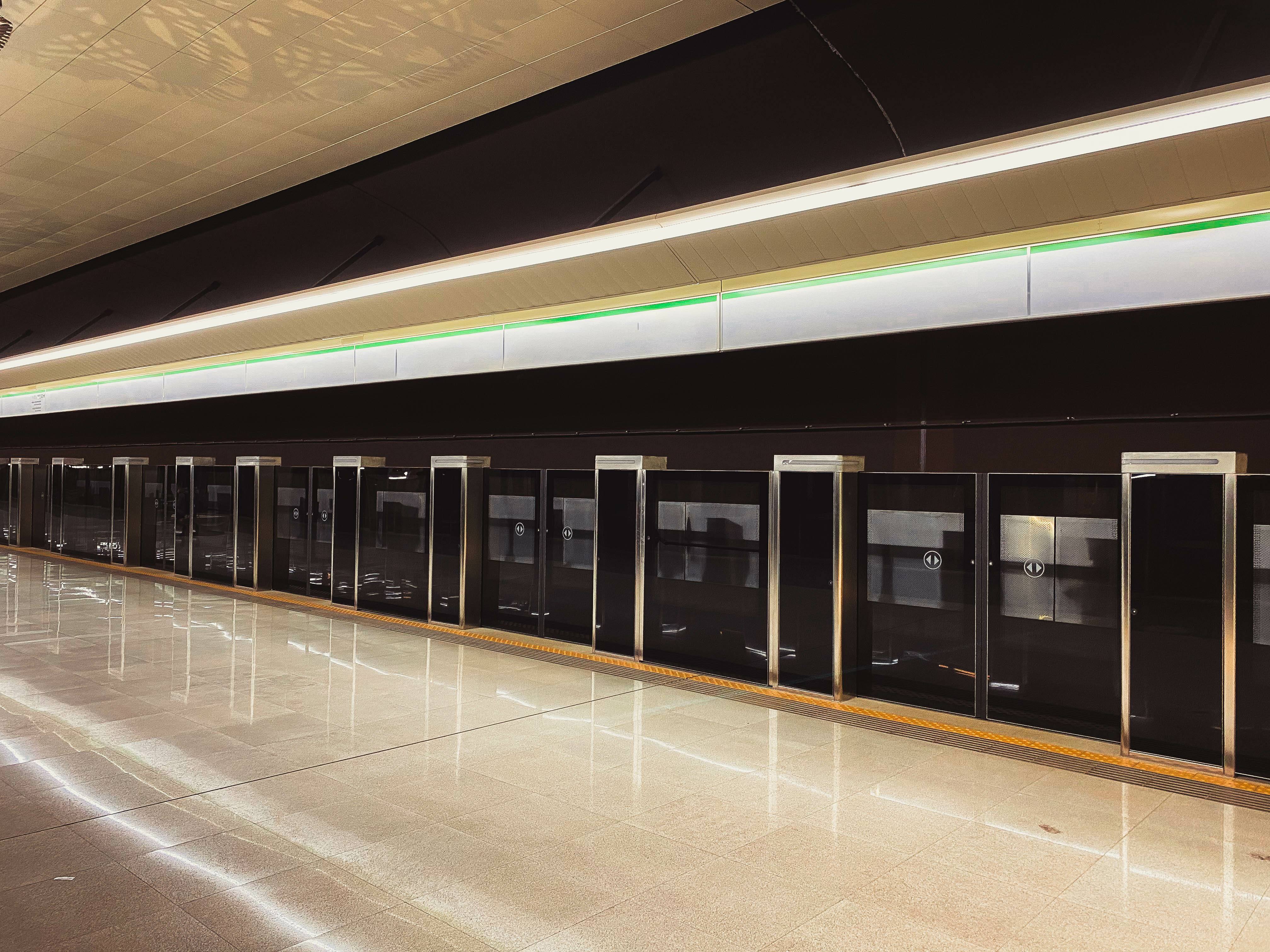 Learn moreNews | 30 January
Learn moreNews | 30 JanuaryFull Steam Ahead on Metro Tunnel Testing
The Andrews Labor Government’s Metro Tunnel Project is powering ahead towards its all-important train testing milestone, with brand-new platform screen...
-
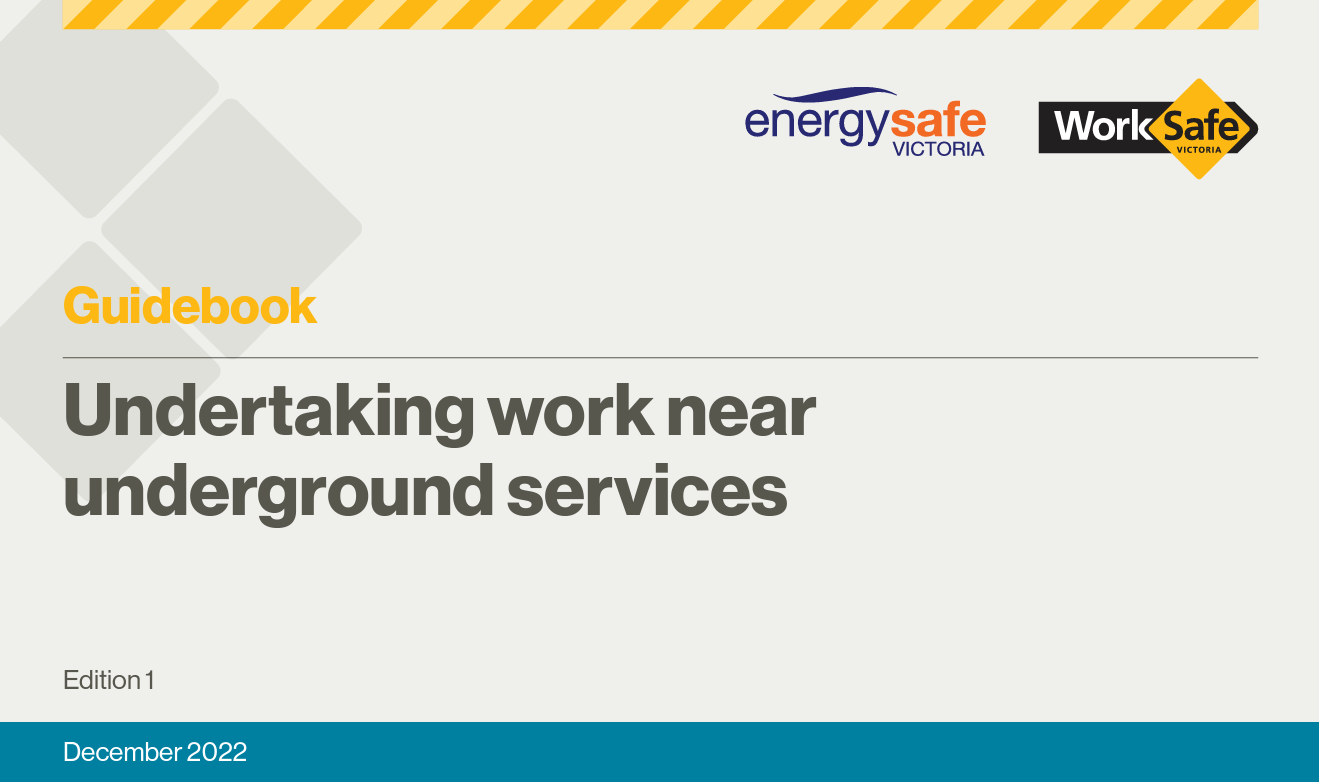 Learn moreNews | 30 January
Learn moreNews | 30 JanuaryGuide to undertaking work near underground services
Manage hazards and risks of working near underground services There is a new guidebook which has been produced by WorkSafe...
-
 Learn moreNews | 23 January
Learn moreNews | 23 JanuaryContinuing On The Road To Recovery
More of Victoria’s flood-ravaged roads are set to undergo large-scale repairs thanks to the Andrews Labor Government’s $165 million emergency...
-
 Learn moreNews | 18 December
Learn moreNews | 18 DecemberInfrastructure Australia Board appointments – Media Release
18 December 2022 The Hon Catherine King MP – Minister for Infrastructure, Transport, RegionalDevelopment and Local Government The Albanese Government...
-
 Learn moreNews | 16 December
Learn moreNews | 16 DecemberUDIA calls for settlement strategy to address skilled labour shortages
UDIA National Media Release – Friday 16 December 2022 One year ago, UDIA National called for a robust population plan...
-
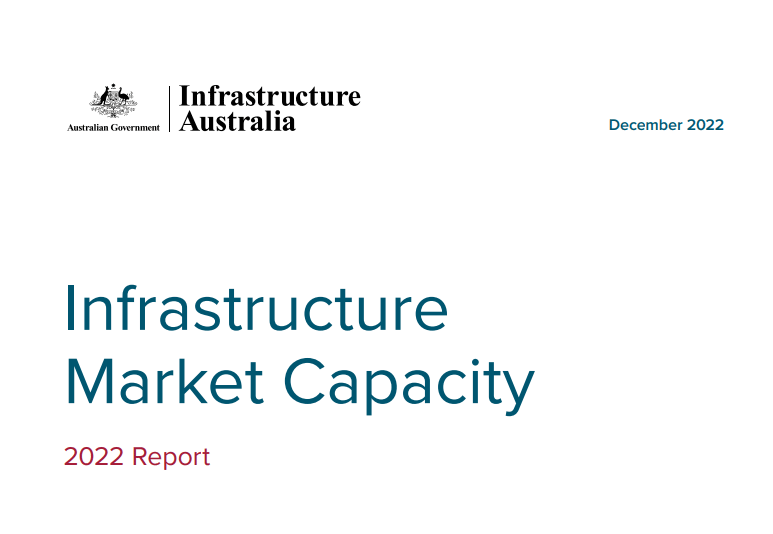 Learn moreNews | 14 December
Learn moreNews | 14 DecemberIA’s Market Capacity Report identifies priority next steps on the infrastructure reform road
CCF Media Release – Wednesday 14th December 2022 “Infrastructure Australia’s Infrastructure Market Capacity 2022 Report provides compelling evidence of the...
-
 Learn moreNews | 13 December
Learn moreNews | 13 DecemberCommonwealth Games Villages mean more jobs for civil in regional Victoria
Civil opportunities for Commonwealth Games – REGISTER NOW The Commonwealth Games are coming to Victoria and will run from 17-29...
-
 Learn moreNews | 12 December
Learn moreNews | 12 DecemberJob Opportunity – Trainer and Assessor, Civil Construction Industry
CCF Victoria have an amazing opportunity for a trainer & assessor to join our training team to support the training...
-
 Learn moreNews | 06 December
Learn moreNews | 06 DecemberBig Build Heats Up In Regional Victoria
VIC GOV Media Release – Tuesday 6th December 2022 Victoria’s Big Build will heat up over summer, with major works...
-
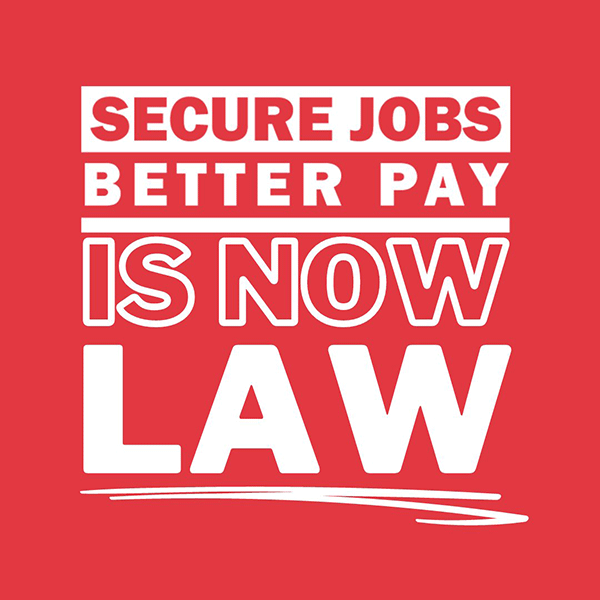 Learn moreNews | 02 December
Learn moreNews | 02 DecemberSecure Jobs, Better Pay has become law and represents the biggest change to our workplace laws in over two decades
The bill has now passed and these changes will have an impact, and we want you to be ready for them. Please...
-
 Learn moreNews | 30 September
Learn moreNews | 30 SeptemberPositive Plans Positive Futures – Forum Plus NEW Mental Health Training Waitlist
On Thursday 15th of September 2022 we held a mental health forum in Geelong to conclude our Positive Plans Positive Futures...

